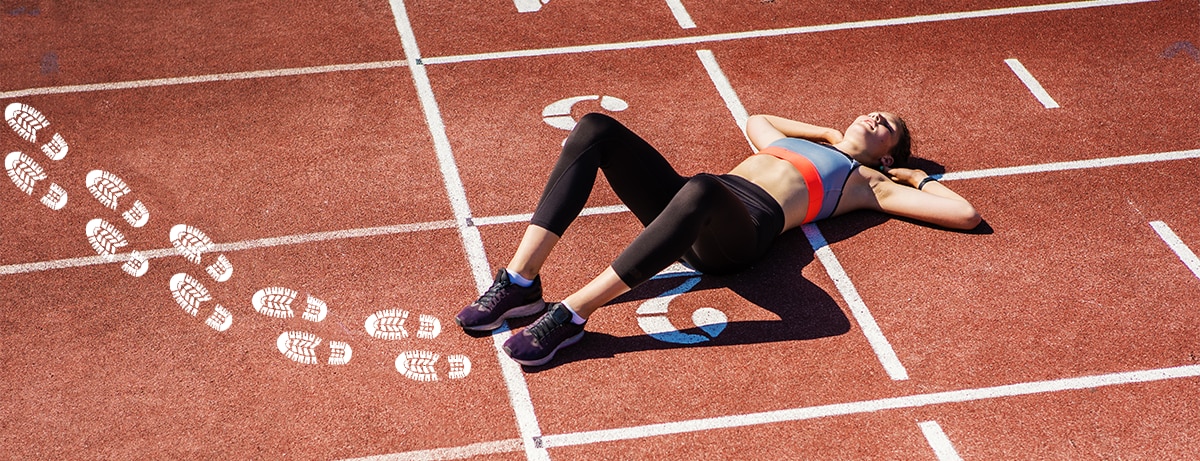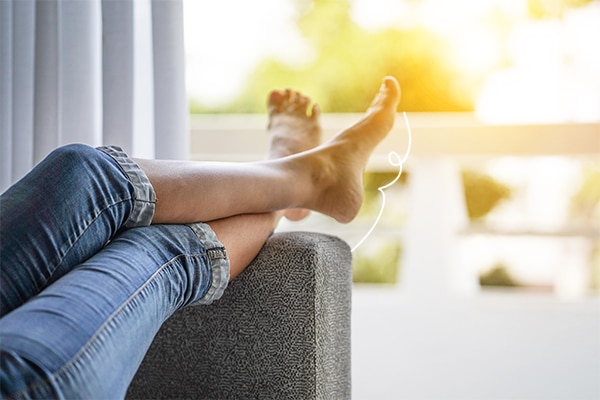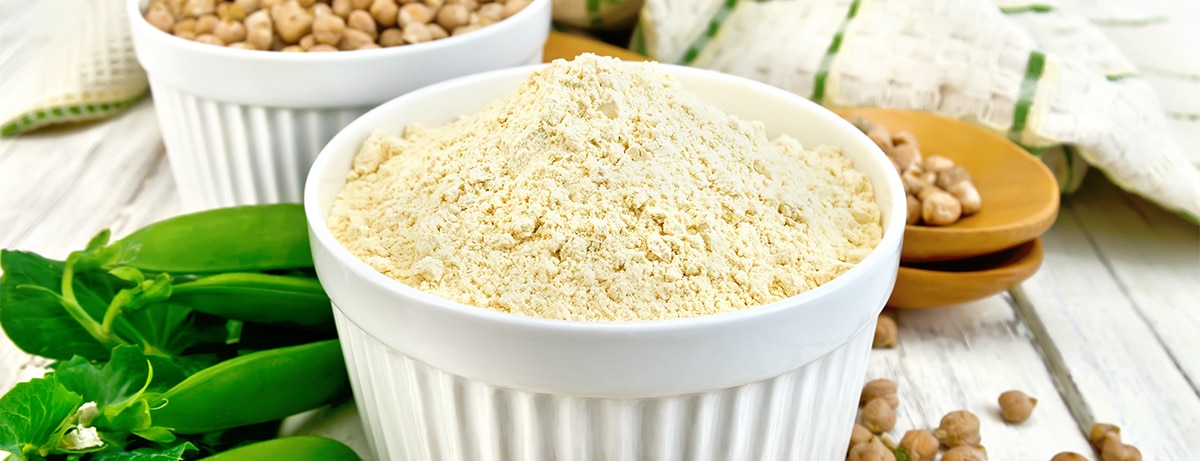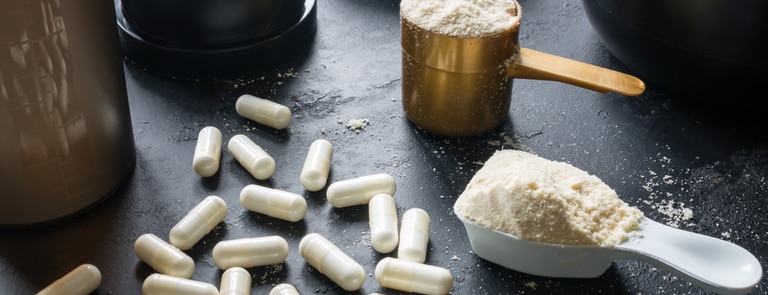10% off £35
Tips on resting & recovery post-marathon

After what feels like years of early alarms and sweaty shoes... you’ve done it!
Post-marathon recovery looks different for everyone, but such a huge achievement can take an extreme toll on your body and mind.
In the same way that you’ve trained for this moment, there are a few things that everyone should build into their post-marathon recovery regime.
Whether it’s the moment you step over the finish line or in the weeks after, what should you consider for top recovery?
Skip to: Recovering from a marathon | Straight after | On the first night | The days and weeks after | The final say
How can I recover...
...straight after?
1. Keep moving (gently)
You’ve crossed the line!
Yes, you’re done - but do your best to keep your body moving, no matter how slowly.
Try to walk gently for about 10 minutes afterwards to help continue the supply of oxygen and nutrients to your muscles.
2. Stretch out and cool down
No matter how much care you take, you’ll still sustain some muscle damage from running that 26.2 miles. And with it comes the dreaded delayed-onset muscle soreness (DOMS).
Before you start celebrating, it’s a good idea to do some gentle stretches to help your body relax.
You’ll likely have nailed your cool-down routine by now, so it’s best to stick to what you know – but don’t be afraid to gently stretch out anything that feels like it needs it. If you’re not already, pay particular attention to your glutes, quads, hamstrings, hip flexors, adductors, calves, and feet.


3. Hydrate, hydrate, hydrate
According to research from Johns Hopkins Medicine and Yale University, a marathon runner sweats about 2.5 litres on average.¹
Even if you’ve been sipping throughout the race, grabbing a drink should be one of your first priorities.
Keep drinking plenty in the following hours and check on your urine; it should be clear or light yellow.
4. Refuel
Headed for a celebratory meal? You deserve it!
But maybe that’s not until later, and it’s important to get something in right now.
Pay attention to protein. Research published in Nutrients journal found that a high protein intake during or directly after a marathon had few effects on muscle fatigue at first, but then showed significant improvements after 72 hours.² So, you’ll thank yourself in a few days.
Ideally, you’d want a balance of carbs and proteins to help your tissues repair, plus some fruit or veg to get vital nutrients into your system. But... you’re moments past the finish line! Don’t turn down a snack purely because of its nutritional value.


5. Stay warm
After a long race, your body temperature can rapidly drop, and getting too cold too quickly could lead to hypothermia.
Even shivering takes up the energy that your body so desperately needs to conserve. Plus, staying warm can help prevent your muscles from tightening and cramping.
Bring a foil blanket and change into warm, dry clothes as soon as you can. Even if you’ve spent the race wanting to strip off, you’ll need to cool down slowly and gradually once you finish.
...on the first night?
1. Take a bath
Some people might avoid a warm soak immediately after the marathon, since warm water can cause your blood vessels to dilate.³ While this is good for your blood pressure, it may not be ideal if you’ve got any swelling.
Brave an ice bath if you fancy! But start with just a couple of minutes and work your way up gradually. Don’t exceed 15 minutes.⁴
Add Epsom salts to help support magnesium levels and relax tired muscles.
Handpicked content: Guide: Using Epsom salt
2. Check your hydration (again)
Keep drinking water and keep checking your urine to make sure you’re hydrated enough.
Maybe you want to celebrate with a drink or two... but try and keep it to just that. Alcohol makes you even more dehydrated, so it’s particularly important to drink in moderation while your body’s recovering.
3. Tune into your body
You might feel different now the adrenaline’s wearing off. Take a minute to mentally scan yourself from head to toe.
Are there any new twinges? Do you need to eat? Exhaustion and high emotions might block some of your body’s cues, so check in every few hours to make sure you’re recovering at your best.


4. Get some rest
If you’ve not already taken a nap, head off for an early night. Our body does most of its repairs while we’re sleeping.
It plays a vital part in our overall recovery and health and can help keep our emotions in check.⁵
Don’t worry if you struggle to fall asleep; just try to get as much uninterrupted rest as possible. And enjoy a lie-in for the next few days!
5. Avoid certain painkillers
Some anti-inflammatory painkillers, like ibuprofen, aren’t suitable for those with kidney and liver damage.⁶ And it’s worth noting that running the marathon may put stress on the kidneys. In the Yale study mentioned previously, 55% of the runners showed acute kidney injury (AKI), a short-term and reversible condition where kidneys can’t filter waste from the blood like usual.⁷
Make sure you’ve had time to assess any injuries before taking medication, too – you don’t want to ignore or worsen anything, even if you can’t feel the pain.
...the days and weeks after?
1. Look after your feet
Blisters and bumps are to be expected. But keep your fingers away! Let any blisters drain on their own. Then, with clean hands, cover them with a soft plaster. They should go away by themselves; however, you’ll need medical attention if a blister is very painful or looks infected.⁸
You might also experience plantar fasciitis (pain on the bottom of the foot, around the heel and the arch). Keeping your feet raised, applying ice packs, and wearing shoes with good support can all help relieve this.⁹
Some aching is normal in the days following the marathon. But, if you’ve got swelling or pain that won’t go away, it could be a sign of a more serious injury.


2. Rest for better performance
Everyone needs a different amount of rest time after a marathon. But one thing’s agreed on: don’t go straight back into running.
Even if you feel relatively unscathed, your muscles are still extremely fatigued.
You can still practice “active recovery”, maybe by walking, swimming, or taking a yoga class. Light, low-impact exercise may help your body recover, but continue listening to your body and calm things down if you don’t feel ready. A week or two of complete rest won’t set you back.
Even as the weeks go on, make sure you’re slotting rest days into your routine. The amount of rest you’ll need (and want) depends on your body, your everyday lifestyle, and your goals.
If you’re recovering from an injury, you’ll likely need to take one day off and one day on. But even the most dedicated gym-goers should take at least one rest day per week.¹⁰
3. Keep eating for fuel
Keep eating with recovery in mind: you’ll need plenty of protein and carbohydrates (plus nutrient-rich foods like fruit and veg) as your body gets back to its usual routine.
Don’t deny yourself a treat! Just make sure you’re getting balanced, nourishing meals in too.
Even if you’re not exercising, you’re still recovering, so you’ll need to fuel your body accordingly.


4. Use a massage gun
Ease sore, tight muscles with a massage gun. They’re thought to help decrease tight muscle tissue, which may help with your mobility and soothe discomfort.¹¹
Most massage guns will have multiple speed settings and attachments, so you should find one that works for you!
Keep using throughout your recovery and as you ease back into exercise.
5. Look after your mind
After the initial rush, you might be left feeling pretty deflated. You’re exhausted, your routine’s out of sync, and the hype is over.
Take time to enjoy the silence if you can. Your mind needs rest just as much as your body does.
But, if you’d prefer to have something on the horizon, plan what could come next. Will you put some of your training time into another interest? Or will you keep your focus on running once you’re ready?
While the post-marathon blues should pass, know that this can be a difficult time. Check in with family and friends and try to cut your mind a little slack while you adjust.
If you’re struggling for more than a few weeks, or you’re worried about your mental health, speak to your GP to see how you can best move forward.
The final say
Above all... congratulations!
Whether you’re partying or collapsing into bed, try to take a few of these tips with you.
The advice in this article is for information only and should not replace medical care. Please check with your GP or healthcare professional before trying any supplements, treatments or remedies. Food supplements must not be used as a substitute for a varied and balanced diet and a healthy lifestyle.
Before taking any supplements or minerals, it’s best to make sure you’re getting all the nutrients through your diet first.
Food supplements must not be used as a substitute for a varied and balanced diet and a healthy lifestyle.
Traditional herbal medicinal product for use in symptomatic relief of muscular and rheumatic pain exclusively based on long standing use as a traditional remedy.
2. https://www.ncbi.nlm.nih.gov/pmc/articles/PMC5872751/
3. https://www.health.harvard.edu/heart-health/hot-baths-and-saunas-beneficial-for-your-heart
4. https://www.verywellfit.com/soak-in-hot-or-cold-water-2911366
5. https://www.bupa.co.uk/newsroom/ourviews/benefits-good-night-sleep
6. https://www.nhs.uk/medicines/ibuprofen-for-adults/who-can-and-cannot-take-ibuprofen/
7. https://medicine.yale.edu/news-article/marathon-running-and-kidney-damage-what-runners-should-know/
8. https://www.nhs.uk/conditions/blisters/
9. https://www.nhs.uk/conditions/plantar-fasciitis/
10. https://www.ouh.nhs.uk/patient-guide/leaflets/files/33845Prunning.pdf
11. https://health.clevelandclinic.org/are-massage-guns-for-percussive-therapy-worth-it/














